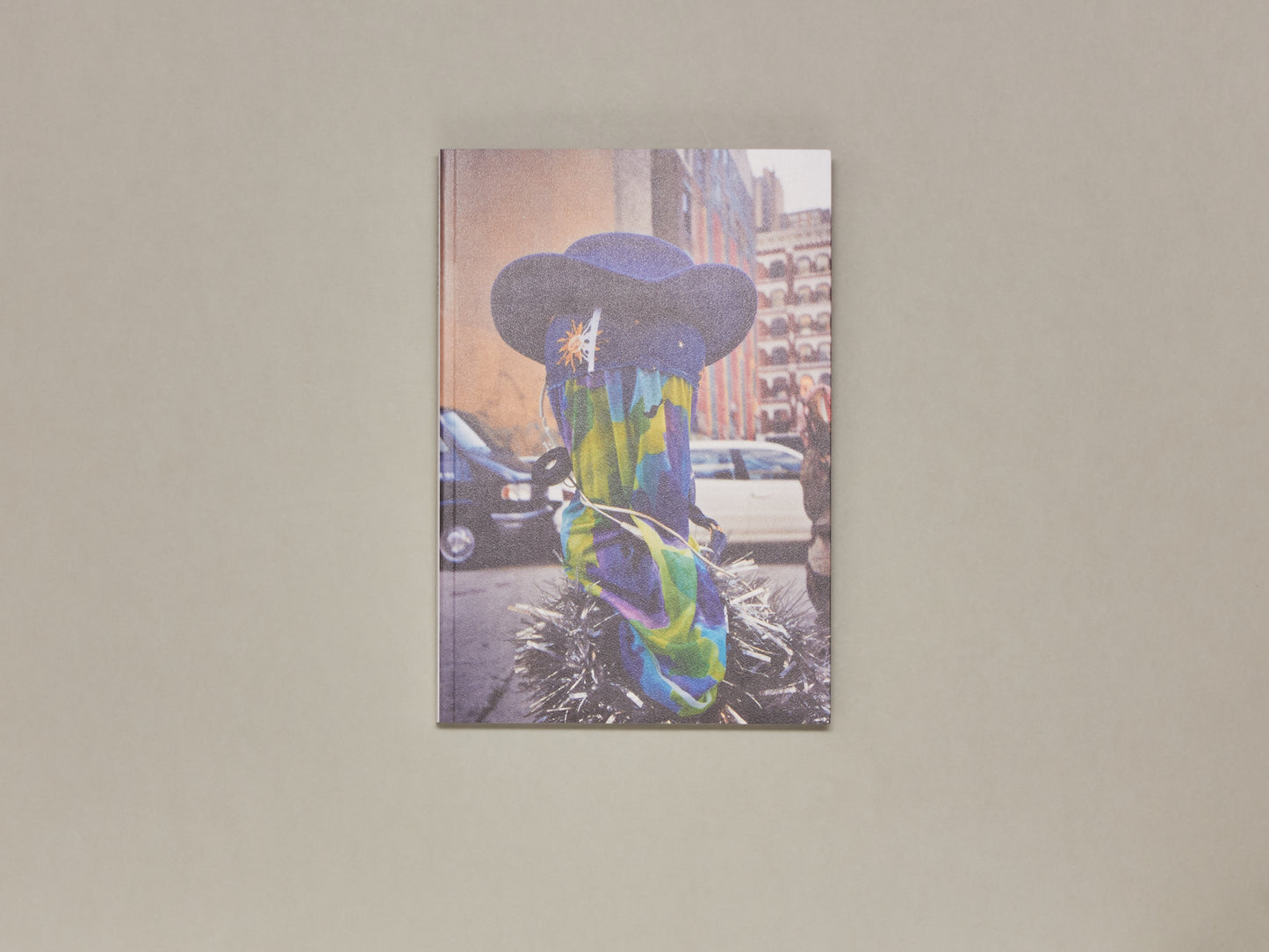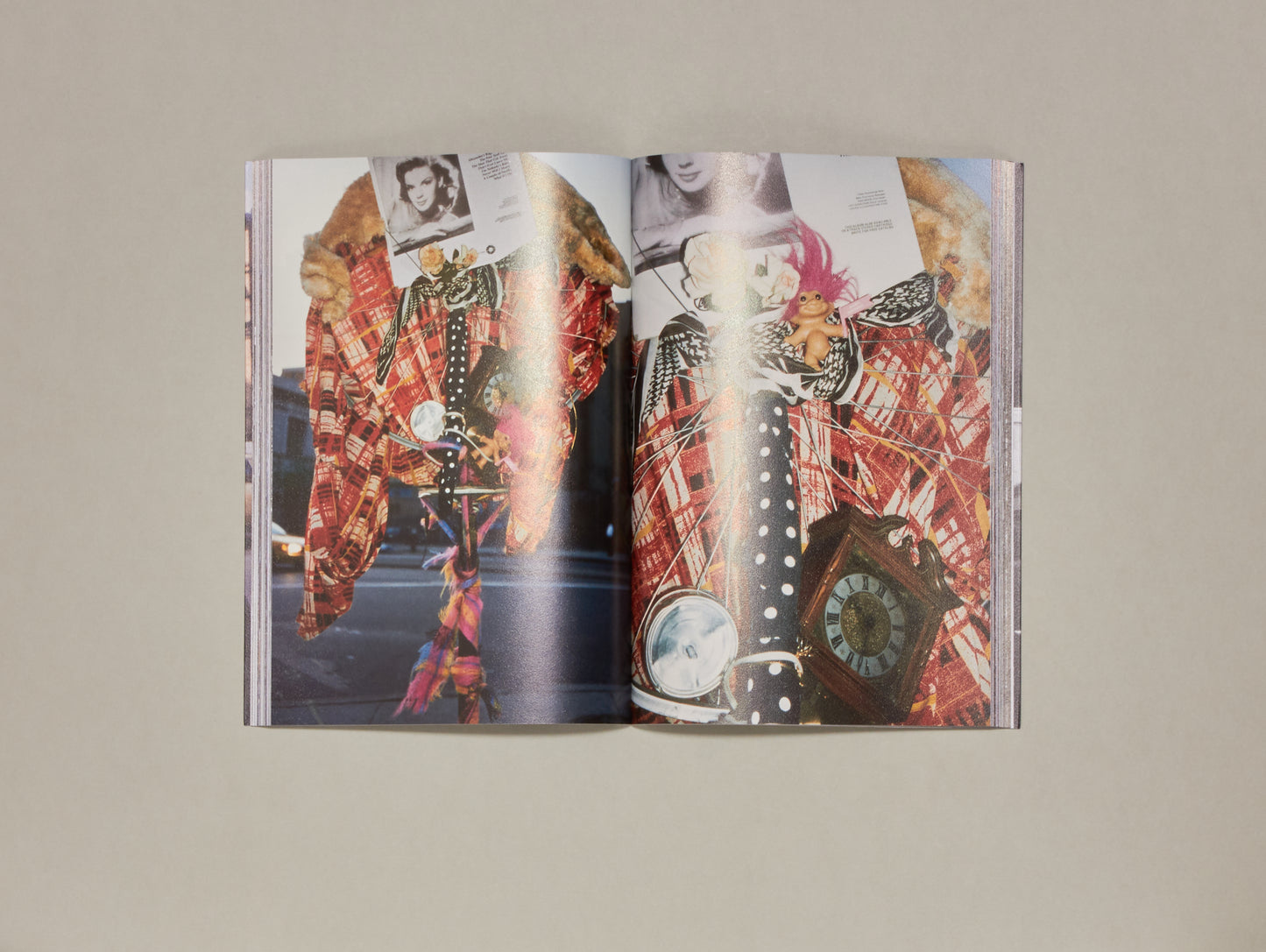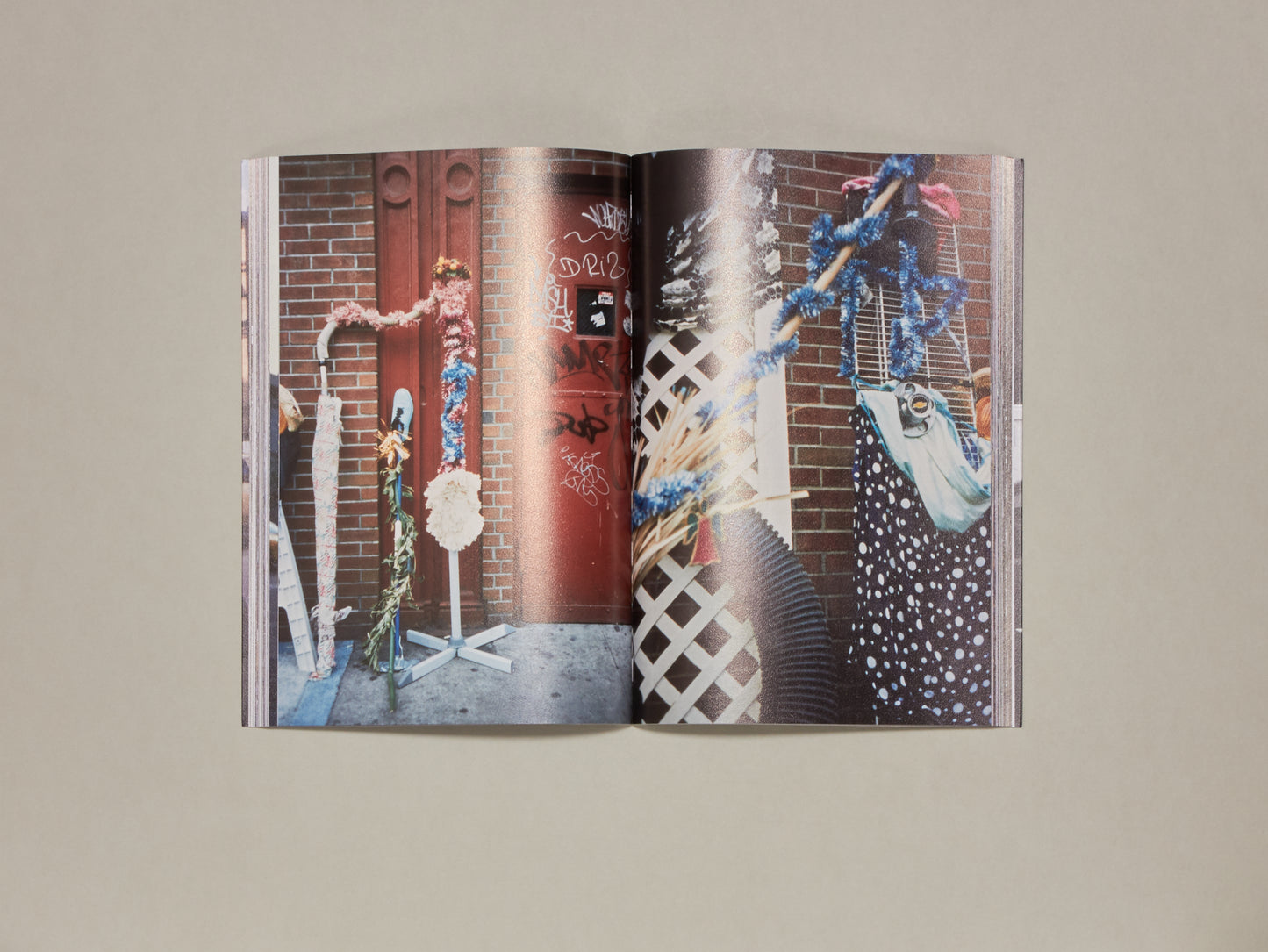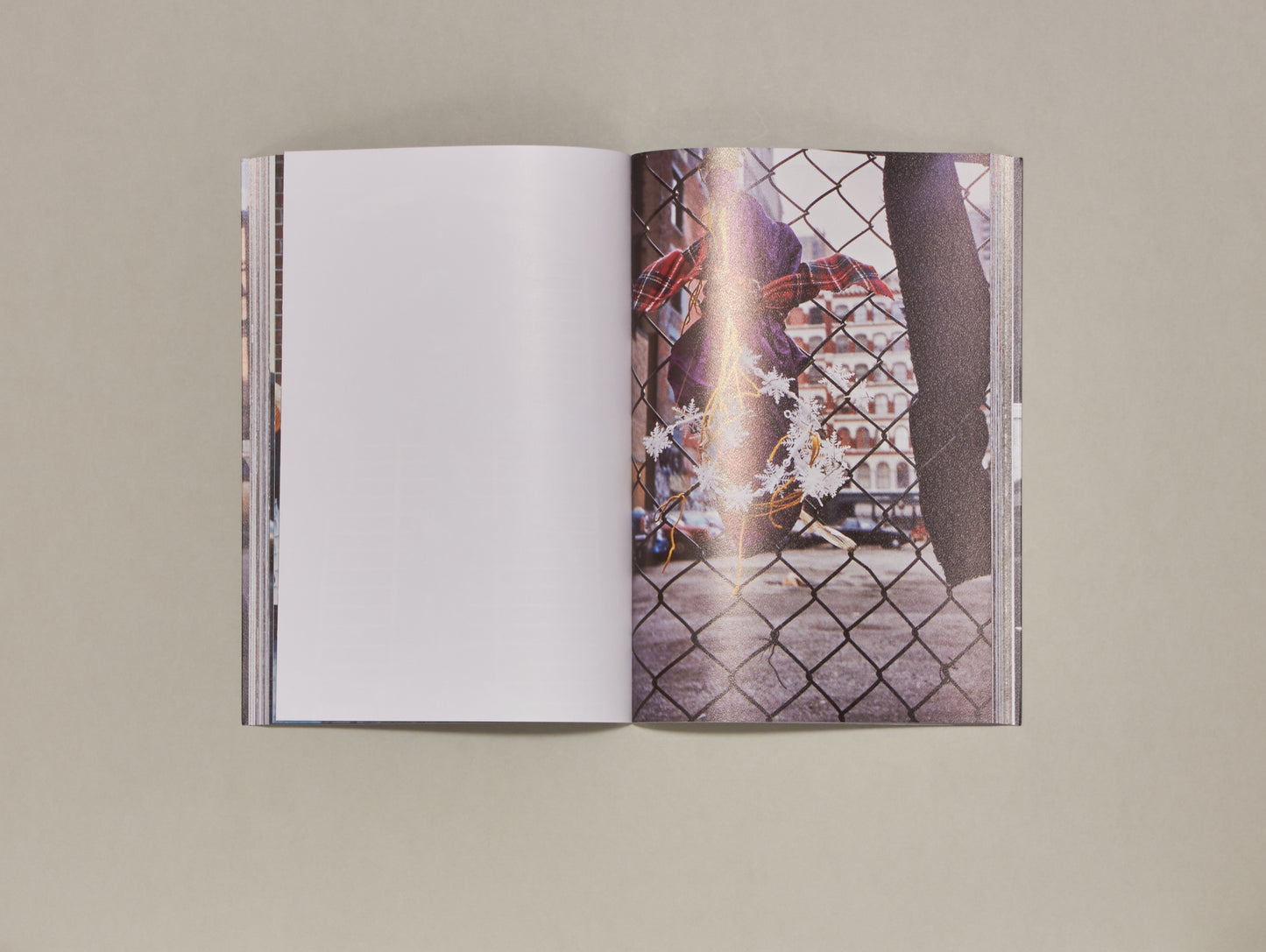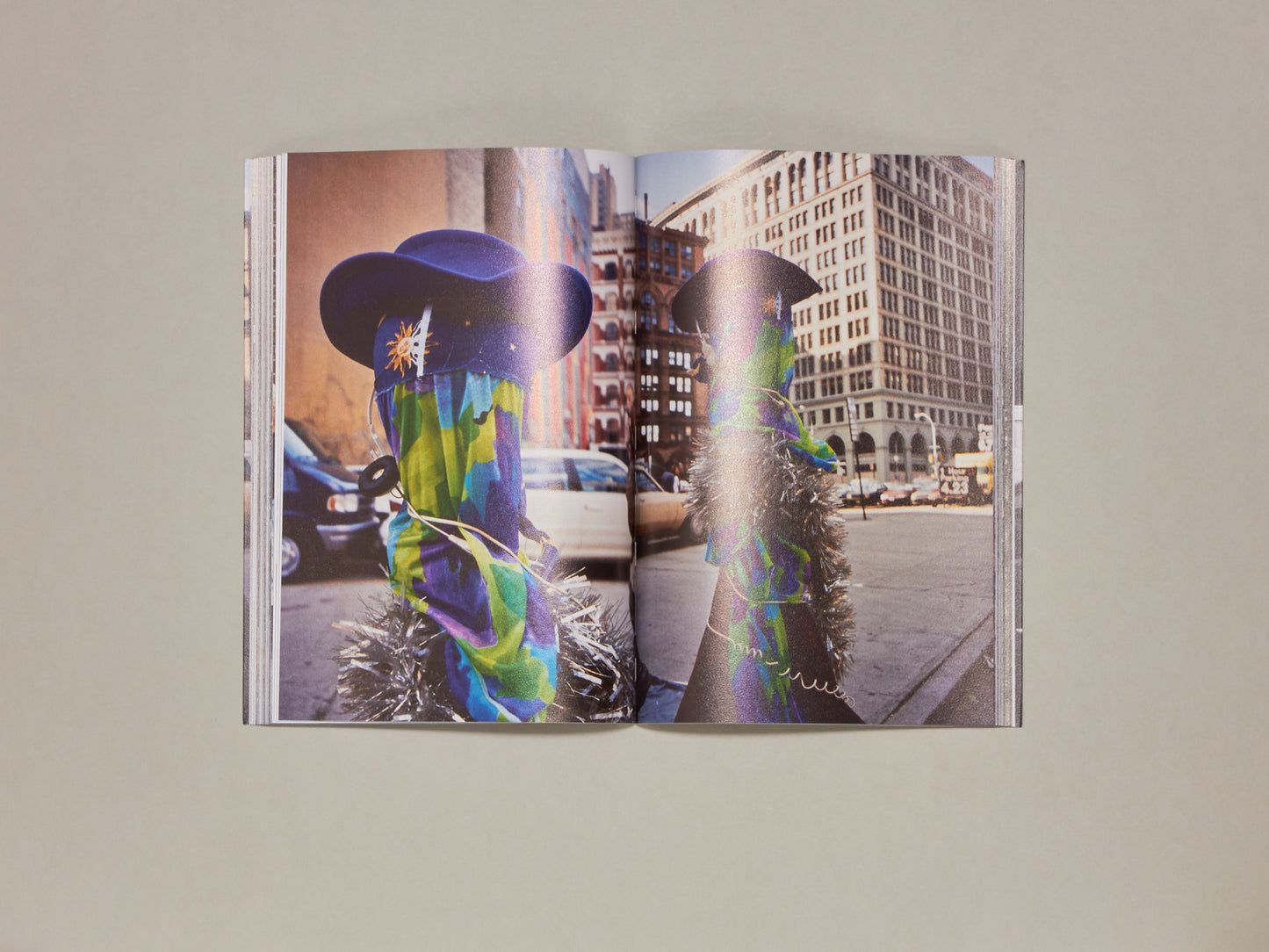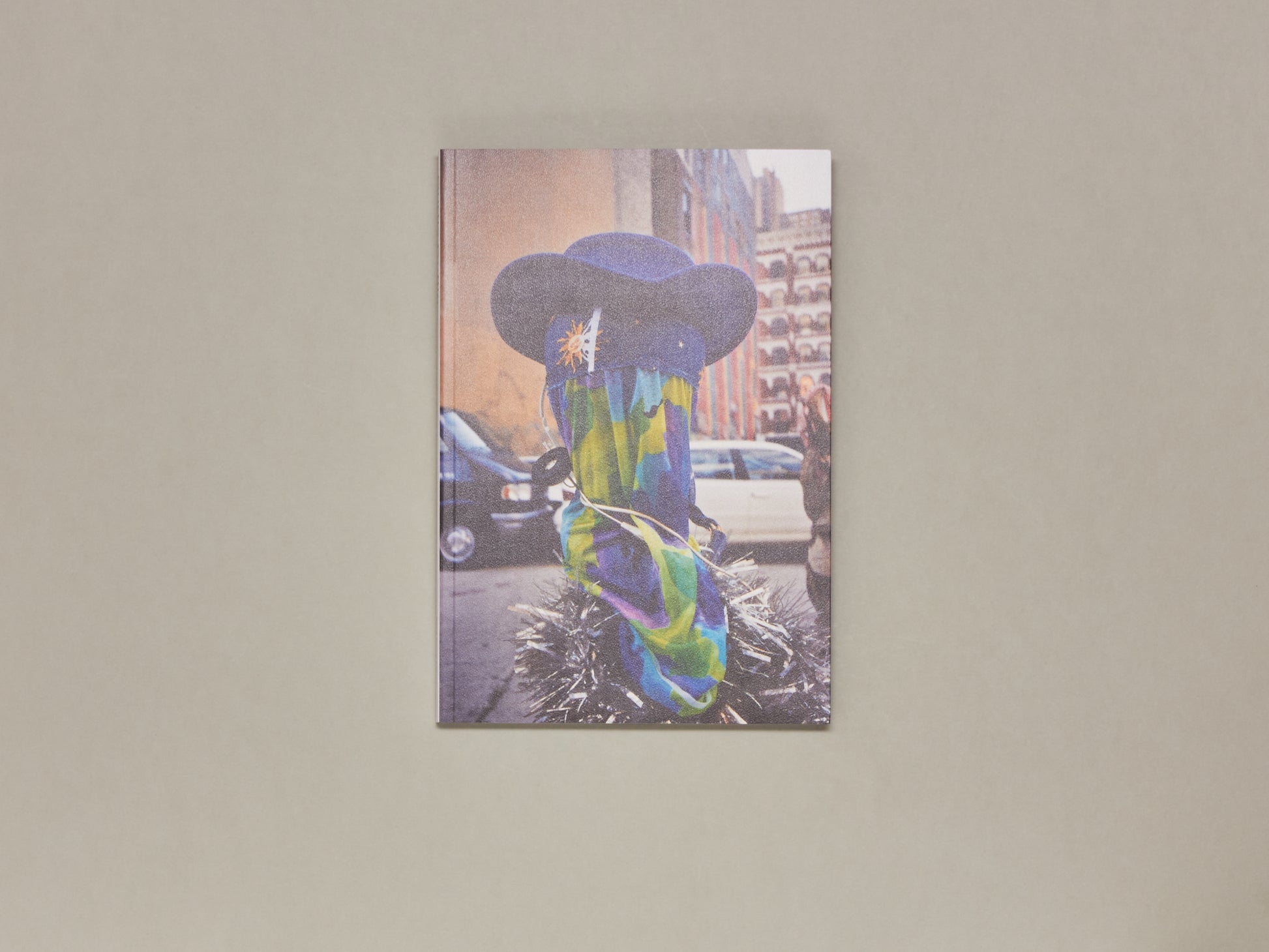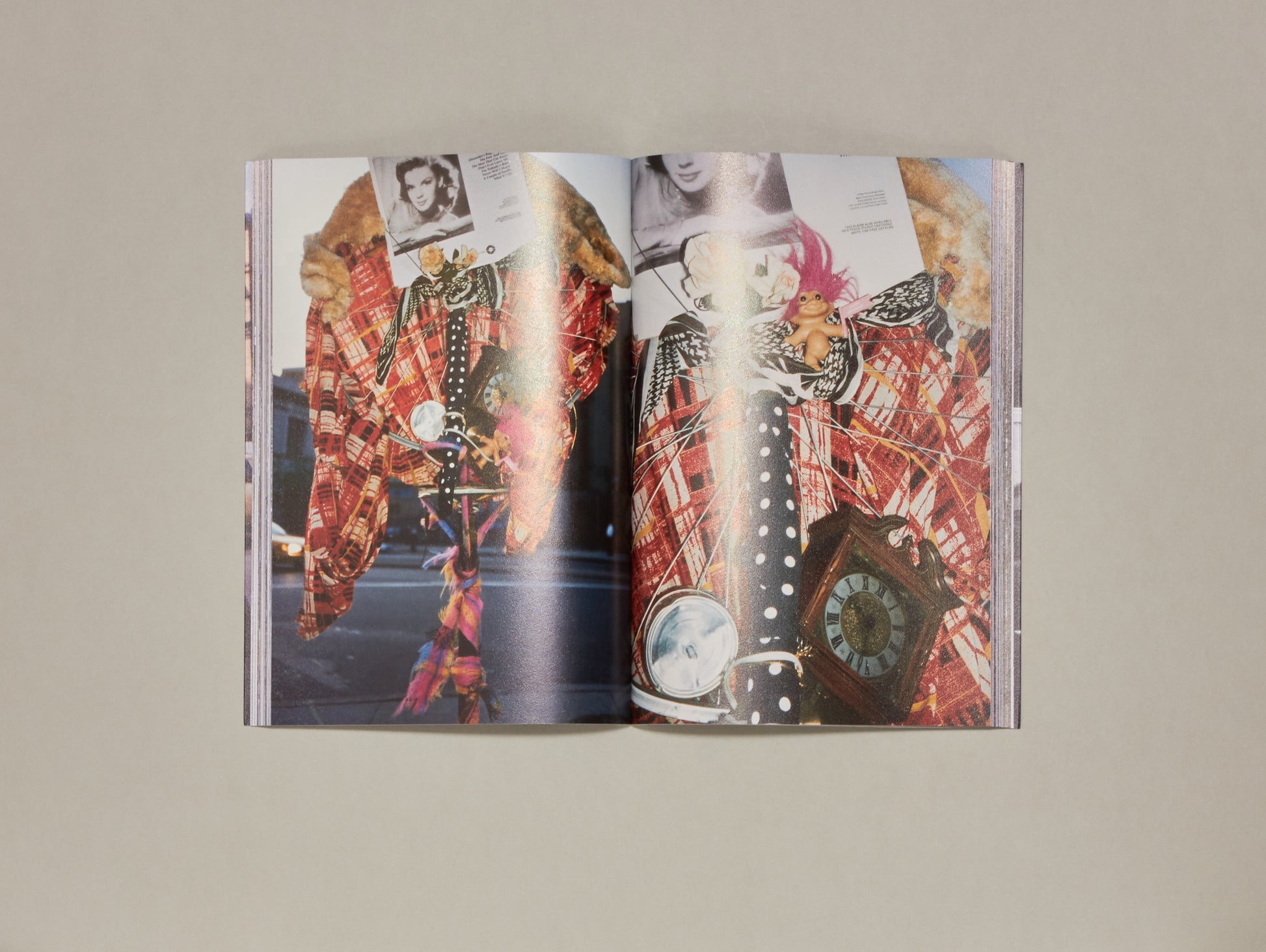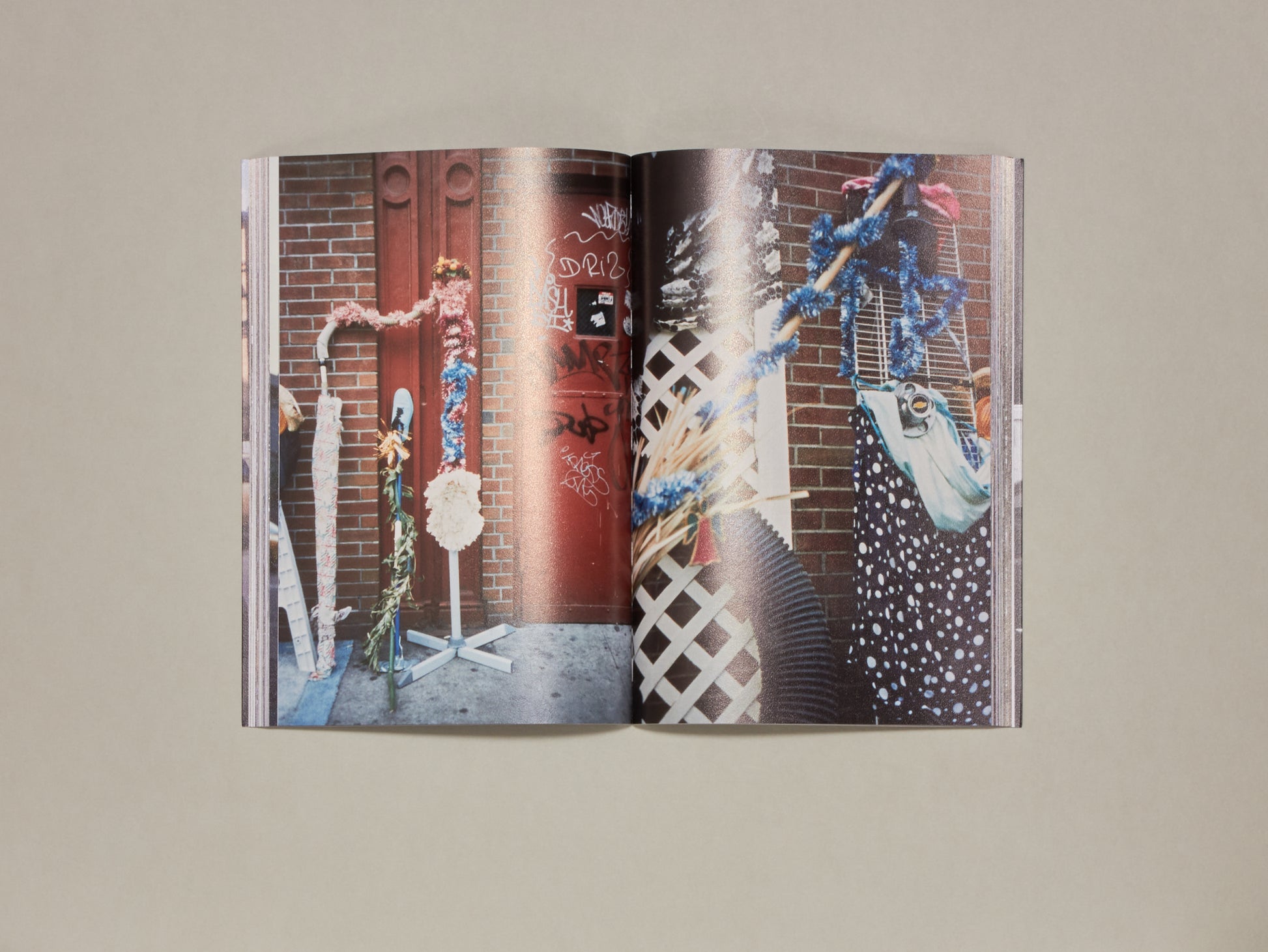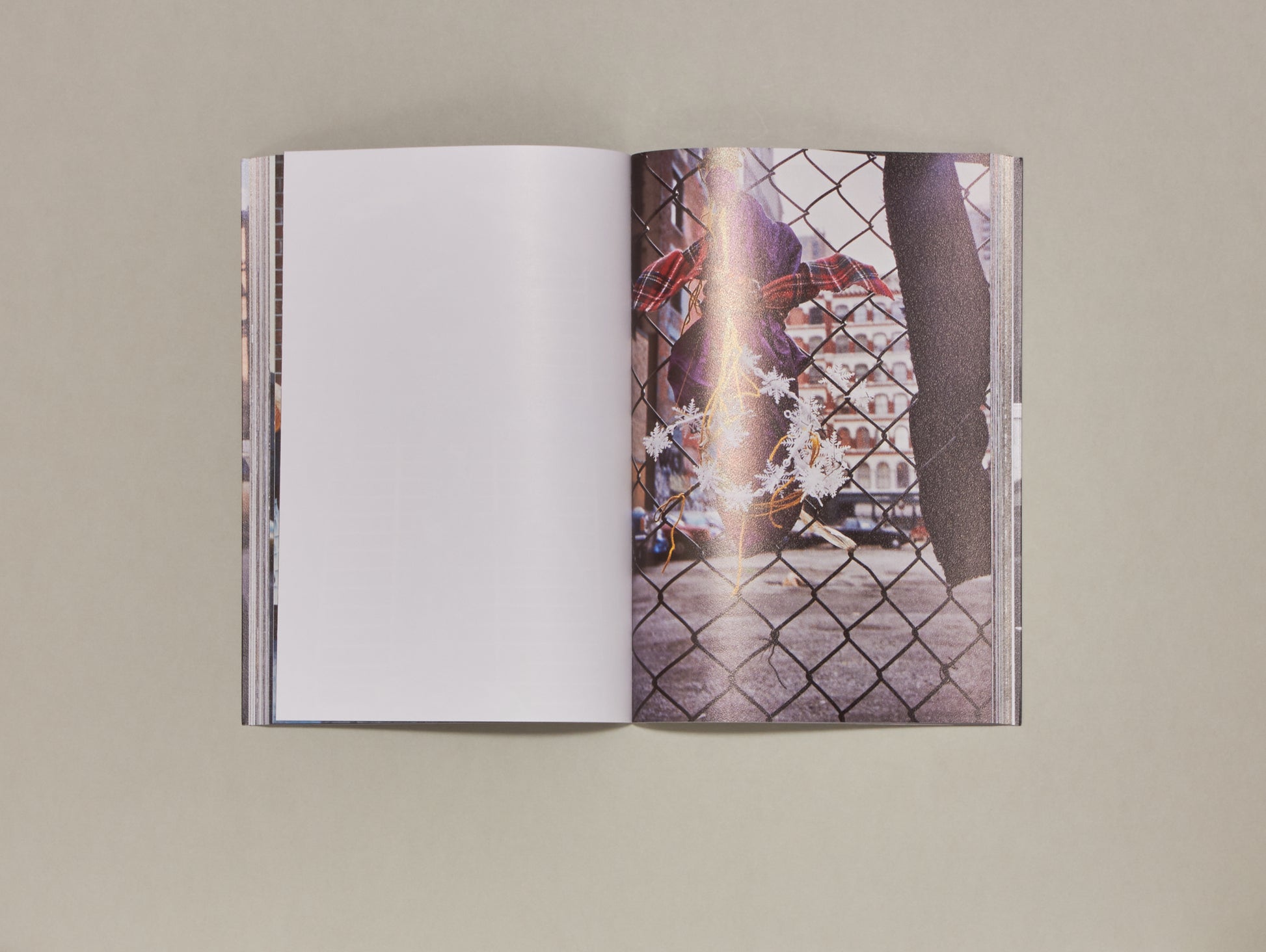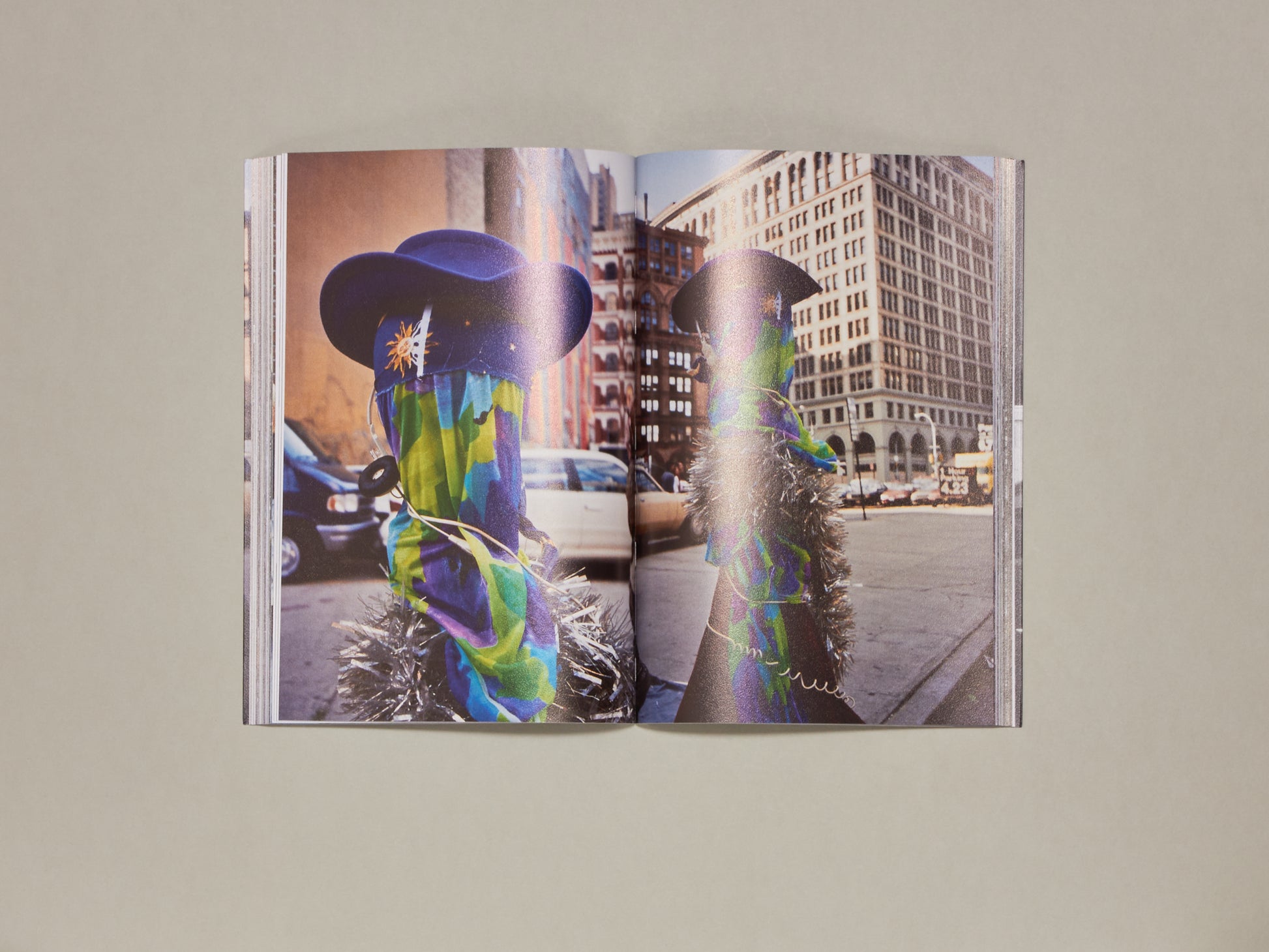Couldn't load pickup availability
Curtis Cuffie (1955–2002) was an artist who lived and worked in and around the East Village from the mid-1980s until his untimely death in the early 2000s. He moved to New York from Hartsville, South Carolina, as a teenager and lived unhoused for long stretches of his adult life. Cuffie found local notoriety for the way he adorned the streets of downtown New York, collecting what the city provided, often sifting trash to stage on-the-spot sculptures along the Bowery and Cooper Square. His arrangements took the form of impossibly balanced towers, delicate shrines, and unwieldy processions up to thirty-feet in length installed along the walls, fences, and sidewalks of the Lower East Side. Nearly without fail they were removed by the police, inclement weather, the department of sanitation, or the grounds team at Cooper Union, which would later employ him.
An enduring presence in the East Village, Cuffie staged sprawling tableaux outside the Village Voice offices that were admired by students and venerable artists alike. He was profiled by scene reporters, political writers, and folk-art journalists, all the while exhibiting in the neighborhood’s famed alternative art spaces. While few of his sculptures remain today, a trove of photographs from the 1990s taken by Cuffie and his companion Katy Abel preserve the work he made in the city. This photobook, the first publication about Cuffie, seeks to honor the artist by collecting the efforts of two of his partners: Carol Thompson, who lived with Cuffie from 1996 to 2001 and archived a great number of his 35mm photographs, and Abel, a Cooper Square resident who took hundreds of snapshots of his art. Curtis Cuffie is designed by Julie Peeters, edited by Scott Portnoy and Robert Snowden with Ciarán Finlayson, and additionally includes writing by the artist, Finlayson, and critic Alan Moore, and images taken by Tom Warren and Margaret Morton.
